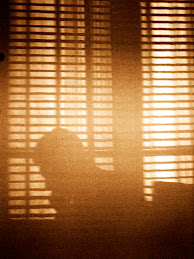Russia and U.S. back away from confrontation
HEILIGENDAMM, Germany: Russia and the United States on Wednesday appeared to step back from their confrontation over a planned U.S. missile shield, as President George W. Bush said Moscow was not a menace to Europe and the foreign minister of Russia withdrew a threat to pull out of a conventional arms treaty.
The conciliatory remarks came as leaders of the Group of 8 industrialized nations gathered for a summit meeting that was at risk of being overshadowed by President Vladimir Putin's threat to aim Russian missiles at nuclear sites in Europe if Washington, as planned, deployed the shield in Poland and the Czech Republic.
"Russia is not going to attack Europe," Bush said Wednesday. "As I said yesterday, Russia is not an enemy. There needs to be no military response because we are not at war with Russia."
Speaking in Prague before traveling to Heiligendamm, the site of the summit meeting, Bush said that Putin had nothing to fear. The shield, he said, is a "purely defensive measure."
President Nicolas Sarkozy of France and Tony Blair, the British prime minister, called Wednesday for a more constructive relationship with Russia after months of threats by Moscow to withdraw from several arms control treaties and the Kremlin's recent test of a new intercontinental ballistic missile that officials said could pierce any defense system, including the planned U.S. shield.
Last month, Sergey Lavrov, the Russian foreign minister, called an emergency conference for next week in Vienna to discuss the Treaty on Conventional Forces in Europe after Putin announced that Russia would freeze its commitments under the pact.
But Lavrov, who has consistently taken a tough stance against the U.S. missile shield, said Wednesday that Moscow was not planning to withdraw from the treaty. "The issue will not be raised. This conference has been called so that we can once again spell out our concerns," Lavrov said.
Signed in 1990 by Western countries and members of the Warsaw Pact, the treaty set ambitious goals for reducing and limiting the number of battle tanks, heavy artillery, combat aircraft and attack helicopters deployed and stored in countries stretching from Canada across Europe to the Ural Mountains in Russia.
The treaty was updated in 1999 to take into account the breakup of the former Soviet Union so that it could be applied to new independent states, including Georgia and Moldova, where Russia still had considerable forces and equipment.
So far, however, the 26 NATO countries have refused to ratify the amended treaty pact unless Russia withdraws its forces from Georgia and Transnistria, where a Russian-backed separatist movement has been trying to break away from Moldova.
Lavrov's comments, reported by the Itar-Tass news agency, which reflects Russian government policy, caused some confusion among diplomats in Vienna.
"Russia has left us all scratching our heads," said a senior Western diplomat involved in preparing for the meeting next week. "First the Russians said they wanted to call this extraordinary meeting, even suggesting they would pull out of the treaty. Now they are saying that is not their purpose."
Russia, in a bilateral agreement with Georgia, is close to fulfilling most of the treaty commitments, according to NATO diplomats. Moldova remains a major stumbling block because Russia so far has refused to withdraw its troops and close munition dumps in Transnistria, as stipulated by the amended Treaty.
NATO, too, was uncertain about Russia's intentions. "NATO countries attach great importance to the Conventional Forces in Europe treaty," said James Appathurai, a NATO spokesman. "They want to ratify the adapted treaty and are very open to discussions in Vienna with Minister Lavrov. However, we first want to see necessary steps taken for the adapted treaty to be implemented."
Only last month, during a closed session of ambassadors to the Organization for Security and Cooperation, which is the forum for discussing the arms pact, Lavrov sharply criticized NATO countries for refusing to ratify the treaty and repeated Putin's threat to withdraw.
His speech, obtained by the International Herald Tribune, also linked Russia's adherence to the treaty with moves by the United States to establish small and temporary bases in Romania and Bulgaria, which joined NATO in 2004.
Sergei Ivanov, the first deputy prime minister, said Russia would suspend cooperation related to on-site inspections of forces and advance notification of military movements.
Last week, in interviews with journalists before the summit, Putin announced that if the shield were deployed, "we will be forced to take adequate steps in response." He added that "new targets will appear in Europe. The systems that may be used to destroy these targets our military believe to be a potential threat to Russia - by ballistic missiles, cruise missiles or something else - is a technical issue."
Source: The International Herald Tribune, By Judy Dempsey Wednesday, June 6, 2007
vendredi 8 juin 2007
Inscription à :
Publier les commentaires (Atom)




Aucun commentaire:
Enregistrer un commentaire